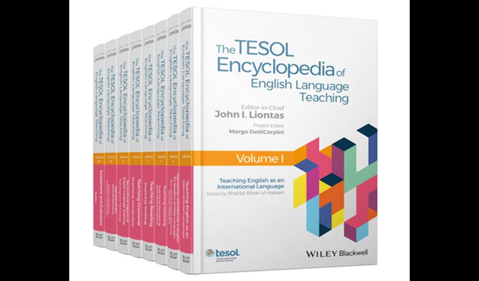Faculty and students from the Linguistics Department, Ohio Program of Intensive English, and English Language Improvement Program are presenting at the Ohio University CALL Conference on April 11. CALL is computer-assisted language learning.
 Dr. Greg Kessler, Director of the Language Resource Center in the College of Arts & Sciences and Associate Professor of Computer Assisted Language Learning in the Department of Linguistics, & Ellen Yeh presented “Enhancing Linguistic and Intercultural Competencies through the Use of Social Network Sites and Google Earth.”
Dr. Greg Kessler, Director of the Language Resource Center in the College of Arts & Sciences and Associate Professor of Computer Assisted Language Learning in the Department of Linguistics, & Ellen Yeh presented “Enhancing Linguistic and Intercultural Competencies through the Use of Social Network Sites and Google Earth.”
Abstract: The purpose of this presentation is to explore the role of global literacy in academic settings as the effect of increasingly digital technologies is being felt across areas of teaching and learning. Digital, global democracies require global literacy skills to individuals for twenty-first century citizenship and intercultural and linguistic competencies. This paper introduces ways to enhance global literacy through the use of technology in three areas: (1) enhancing global literacy through linguistic and intercultural competencies; (3) using technology to enhance intercultural and linguistic competencies; and (4) instructional approaches for using technology (i.e., social network sites, Google Earth).
Abdulrahman Alfahadi, Ph.D. Candidate in Educational Administration in the Patton College of Education, presented on “Feedback and Motivation.”
Abstract: The paper will discuss the following points: the relationship between motivation and feedback; the factors that motivate students to give feedback; the importance of feedback in the teaching-learning process: the outcomes expected by having feedback from students.
Jeff Kuhn, Visiting Lecturer in ELIP, presented on “Data Visualization for Reflective Teaching.”
Abstract: CALL classrooms generate a tremendous amount of data. How can teachers utilize this data to inform classroom practices. This session will explore how to use Google Docs, Wordle and Gapminder to create visual representations of data generated by students during computer-based activities. This presentation will introduce these tools and explain how teachers can use them to move from subjective to objective reflective teaching.
Dr. Herta Rodina, Associate Professor of French in the Department of Modern Languages, presented on “Using Twitter and Skype for Intercultural Communication.”
Abstract: This presentation focuses on Twitter and Skype activities that can enhance students’ knowledge of and appreciation for the diversity of the French-speaking world. For Twitter, I will discuss setting up a class list, filtering for a specific language, as well as basic vocabulary and abbreviations used in French. I will provide several examples of individual and group micro-blogging exercises. For Skype, I will outline the conversation partnership that I and a colleague in Burkina Faso developed for my students of French and her students of English. All examples come from my third-year French conversation and composition classes, but the principles are easily transferable to other levels and languages.
Kristina Guyton, Lecturer, Socio-cultural Coordinator with OPIE, presented on “Add a Creative Spark to Your Class (Low-Tech!).”
Abstract: This presentation will provide fun, creative, and fairly simple ideas for using interesting photos and videos from the Internet to supplement your writing, grammar, listening, speaking, and vocabulary instruction. After attending, you will be able to engage your students with an amusing or unusual photo/video while efficiently working towards your class objectives. A resource list of where to find such photos and videos will also be provided.
“The Holodeck Classroom: An Immersive Context for ESL” was presented by Luke Coffelt, Lecturer and Business Bridge Coordinator with OPIE; Jessy Hendrickx, Lecturer, Listening & Speaking Skill Coordinator with OPIE; Abe Reshad, Lecturer, Database and Facilities Coordinator in OPIE, Jeff Kuhn; & Aaron Schwartz, Lecturer, Technology Coordinator and Advanced Level Coordinator with OPIE.
Abstract: By directing three projectors at three walls, surrounding a central point in the room with video, our program has gained access to what we are calling “holodeck” technology. This technology, created in Ohio University’s Language Resource Lab, has multiple pedagogical applications in the language learning classroom. Specifically, it creates a simulated environment in which students can better prepare, practice, and present in front of a previously recorded audience. This session showcases the “holodeck”, utilized as a way to provide students with a more realistic simulation of formally presenting in a boardroom environment.
Lara Wallace, English Lecturer in ELIP, presented on “Voice Recognition Software: Saving Time and Helping with Feedback.”
Abstract: English language learners (ELLs) working to improve their spoken English intelligibility find that analyzing their transcribed speech is a valuable tool for understanding both what they are not communicating clearly and how to improve their communication. With Google’s voice to text software, students are now able to save time and get feedback instantly. In this workshop, you will be taken through the steps of how to record and have speech transcribed simultaneously. We will then analyze ELLs’ transcriptions and recordings to learn what pronunciation issues the students are facing.
Patrick Mose, Ph.D. Candidate in Instructional Technology in the Patton College of Education & Filipo Lubua, graduate student in Linguistics, presented on “iBook Authoring and Use in a Language Classroom.”
Abstract: The growth of information and communication technology (ICT) and especially the use of internet have influenced the method of delivering content in most higher institutions worldwide (Tella, 2011). Learning in the 21st century requires one to learn the content of the field of knowledge while also mastering a broad portfolio of essential learning, innovation, technology, and career skills needed for work and life (Trilling and Fadel, 2009, p.16). E-Book calls for a learner to possess such skills of manipulation in order to extract crucial information they may want for successful learning. Currently, there seems to be a contentious gap of designing and creating Swahili eBooks. Most Swahili language experts and other stakeholders are arguably appearing not to focus their attention on this. While acknowledging the contribution of eBooks in other languages like English, French, Spanish among others; little seems to have been done to investigate the potential of this resource in most less commonly taught languages particularly Swahili.
Sharron Sturgeon, Lecturer in OPIE, presented on “Quick and Easy Online Tools to (Re-)Engage Your Learners.”
Abstract: No matter the time of day your lesson takes place nor how long the lesson has progressed, students sometimes disengage from the content. This workshop will introduce easy-to-use online games to engage your students at the start of class or re-engage them later on. Some games get them up and moving around with their iPhones or iPods tracking QR codes while others get them competing for best times online. These activities can be prepared in 10-15 minutes and provide a chance for students to forget they’re learning! They’re even easy enough for students to use to create.
Abe Reshad, Lecturer, Database and Facilities Coordinator in OPIE, & Aaron Schwartz, Lecturer, Technology Coordinator, Advanced Level Coordinator in OPIE, presented on “Unwrapping the GIFT Format: Leveraging Mobile Devices.”
Mobile devices in the forms of tablets and smart phones have become ubiquitous in the ESL classroom. As a result, teachers are starting to leverage this resource to save on paper for both reading texts and now, through the GIFT format, assessment. The GIFT format is a free open source coding language that works with the Moodle course management system. Through this hands on workshop, teachers will learn to create various types of assessment items (i.e. multiple choice, short answer, essay, etc…), compile these items into paperless quizzes that are compatible with mobile devices, and run reports for data analysis regarding student progress on these quizzes.
Sherri Saines, Subject Librarian, presented on “The Ultimate LibGuide: The Embedded Librarian in the Linguistics Classroom.”
“Embedded” as in: part of, in the midst of, there in real time. Librarians are transforming their role in the classroom. Tech plays a big part, of course: we have CMSs and Webpages and databases and chat services, but it’s the human element that makes it sing. This hands-on workshop will help you creatively explore how your librarian’s involvement can become an essential element of your teaching & assessment. Let’s talk about learning objectives, information literacy, and ed tech in the 21st century — and how CALL can be a poster child for progressive education.
Chris Distasio, Lecturer in OPIE, presented on “How Corpus-based Tools Can Benefit Your ESL Classroom.”
Word and Phrase.Info and COCA (Corpus of Contemporary American English) are free, corpus-based online tools that are truly prolific in their usefulness. Participants will be guided step by step in how they/students themselves can use these tools to achieve the following essential tasks quickly and effectively: determining the level of academic vocabulary in students’ writing, as well as identifying academic vocabulary for enhancing the level of academic vocabulary therein; finding and learning collocations of a given word in authentic, extensive contexts; identifying synonyms of a given word that have accurate connotations; and viewing saliently displayed academic writing standards.
Nick Swinehart & Jeff Maloney, both second-year graduate students in Linguistics, presented on “Expanding Community English Classes through an Online Course Module.”
Ohio University offers an English course for adult ELLs in the Athens, Ohio community, called “English for All.” This class is currently only offered in traditional face-to-face classroom settings. Several members of the community have expressed interest in the class but are unable to attend due to work schedules, family responsibilities, or limited access to transportation. The researchers seek to make this course available to more students by offering an online component. This three-week pilot course will follow the model of a massively open online course (MOOC), while covering a diverse set of language skills and online resources. Materials will focus on the local community context; for example, students may be presented with target grammatical structures, watch a video lecture that utilizes a map of the Athens area, and then complete a set of tasks that combines the target forms and the local map. The researchers will present the design and practice of the course, learner outcomes and perceptions, and the potential for future implementation of MOOCs in community-based settings.



















2 Comments